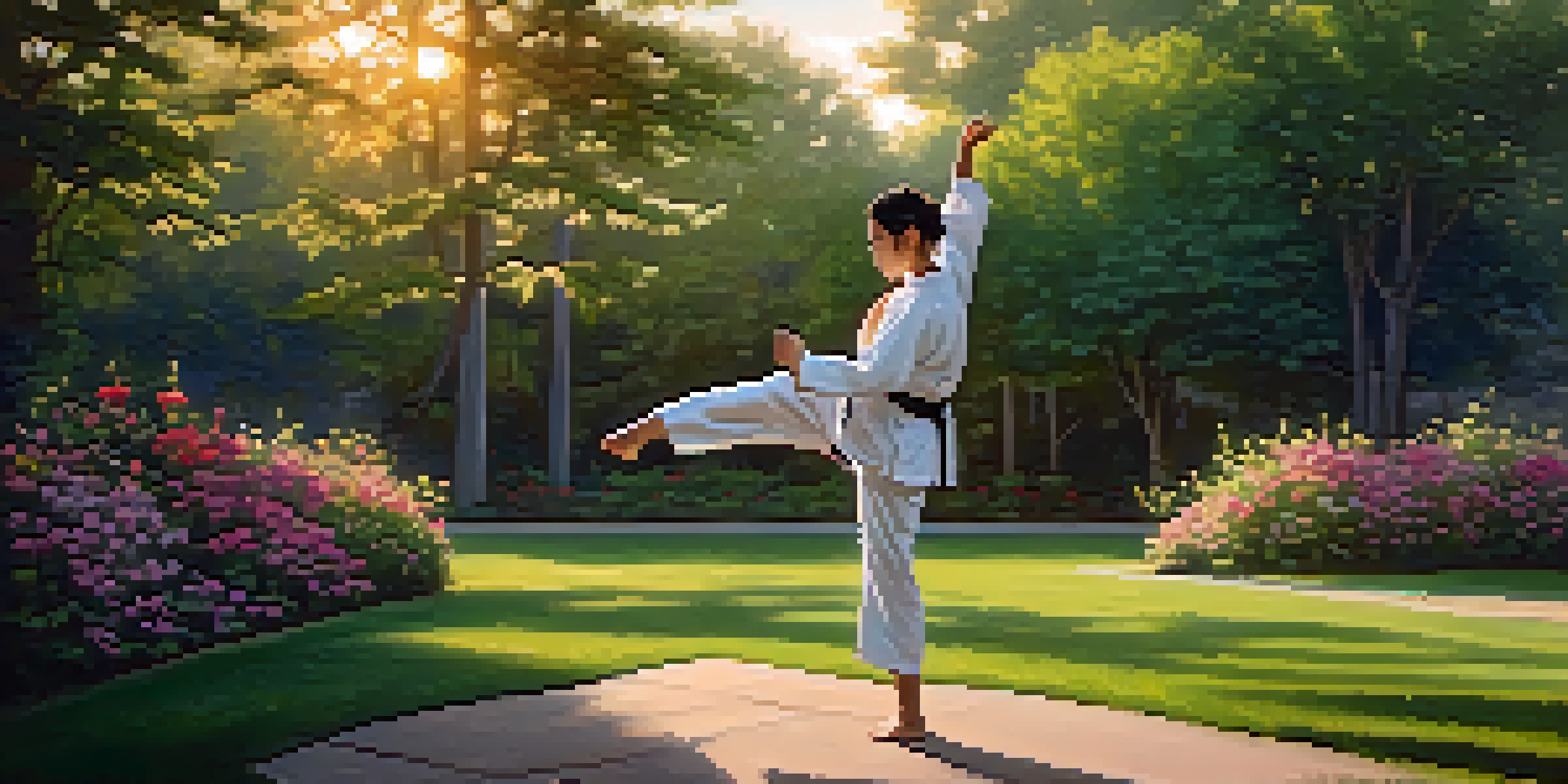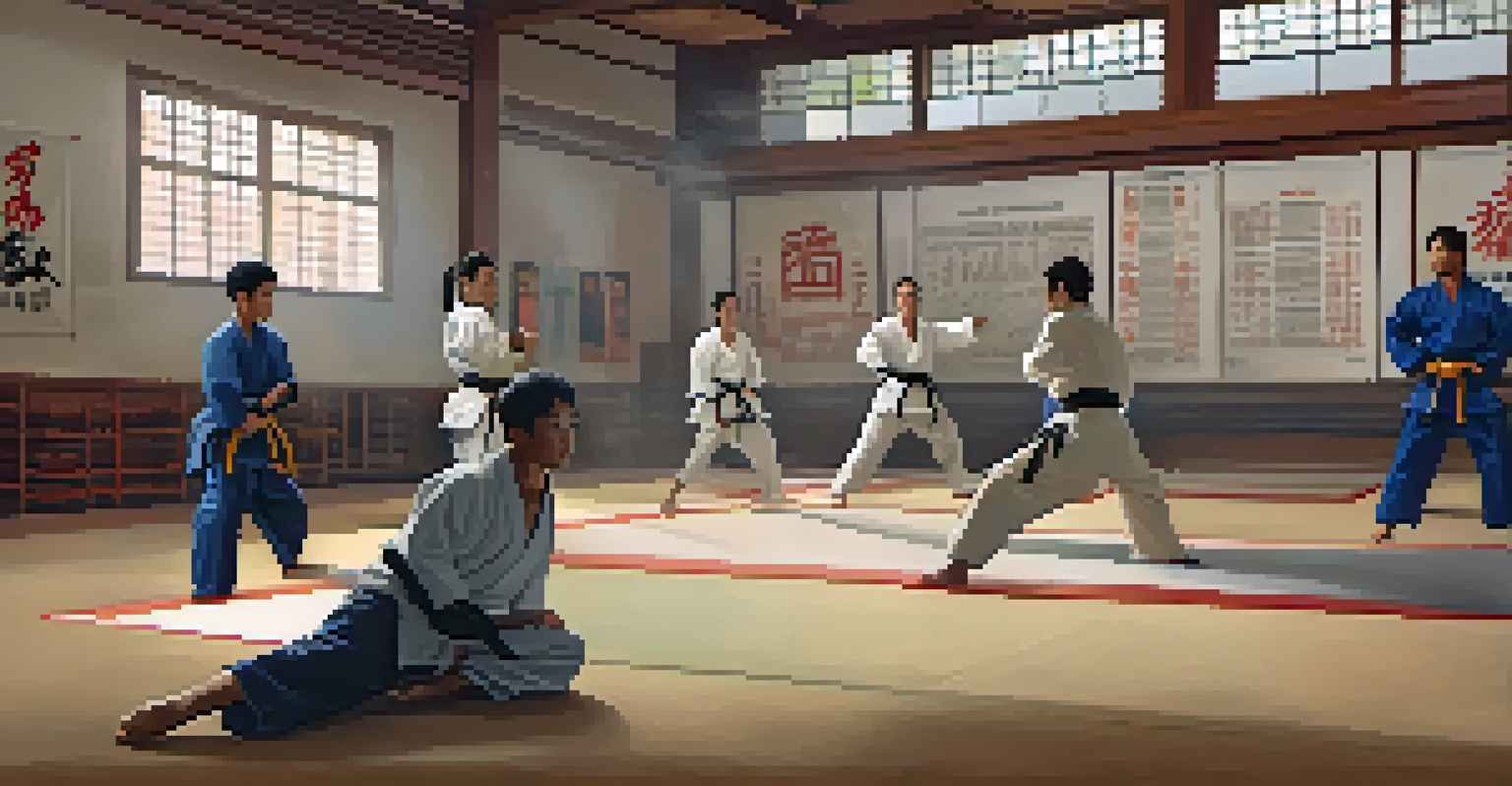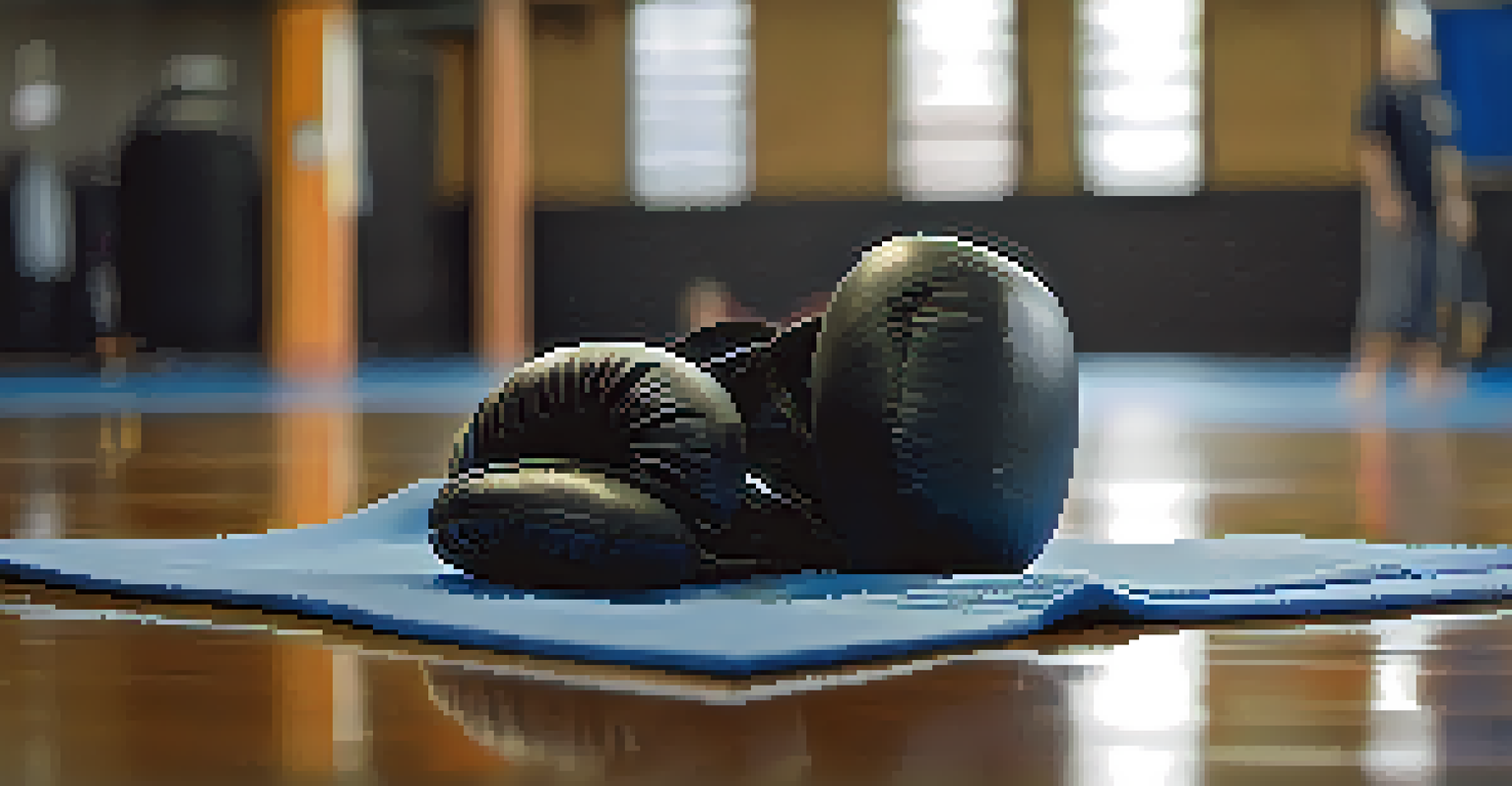Understanding Self-Defense: Skills from Martial Arts Training

What is Self-Defense and Why is it Important?
Self-defense is the ability to protect oneself from harm, often in dangerous situations. It encompasses a range of techniques, strategies, and mental preparedness that empower individuals to respond effectively to threats. Understanding self-defense is crucial not only for personal safety but also for building confidence and awareness in everyday life.
Self-defense is not just a set of skills; it's a mindset that empowers individuals to take control of their own safety.
Imagine walking through a park when suddenly you feel uneasy. Having self-defense skills allows you to assess the situation and respond appropriately, whether that means avoiding danger or defending yourself if necessary. This sense of security can transform how you navigate your environment.
Moreover, self-defense training fosters resilience. By learning to face challenges head-on, individuals cultivate a mindset that extends beyond physical encounters. This holistic approach helps in managing stress and enhancing overall mental well-being.
The Role of Martial Arts in Self-Defense Training
Martial arts provide a structured environment for learning self-defense techniques. Various disciplines, such as karate, judo, and Brazilian jiu-jitsu, offer unique skills that can be adapted to real-life situations. Each style emphasizes different aspects of combat, such as striking, grappling, or joint locks, ensuring a well-rounded skill set.

For example, karate focuses on powerful strikes and quick movements, which can help deter an attacker. On the other hand, judo teaches practitioners how to use an opponent's momentum against them, making it effective even for those who may not possess physical strength. This diversity in training methods makes martial arts an excellent foundation for self-defense.
Self-Defense Empowers Personal Safety
Self-defense skills enhance personal safety and build confidence in everyday situations.
Additionally, martial arts training instills discipline and respect. Practitioners learn to control their bodies and emotions, which is vital when faced with a threatening situation. This mental training is just as important as physical skills, as it enables individuals to act calmly and strategically.
Key Techniques Learned in Martial Arts
One of the fundamental techniques in martial arts is striking, which includes punches, kicks, and elbow strikes. Mastering these techniques equips individuals with the ability to defend themselves against an attacker effectively. For instance, a well-placed kick can create the necessary distance to escape a dangerous situation.
The ultimate aim of martial arts is not having to use them.
Another critical aspect is grappling, which involves close-range combat techniques such as holds and locks. Learning how to grapple can be particularly useful if an assailant gets too close for comfort. This skill set not only aids in self-defense but also promotes physical fitness and flexibility.
Finally, awareness and de-escalation techniques are essential components of martial arts training. Practitioners learn to read body language and assess potential threats, enabling them to avoid confrontations before they escalate. This proactive approach is often the most effective form of self-defense.
Building Confidence Through Martial Arts Practice
Confidence is a byproduct of consistent martial arts training. As individuals learn and master new techniques, they become more aware of their abilities and limitations. This self-awareness fosters a sense of empowerment, allowing them to face challenges with a positive mindset.
Consider a beginner who struggles with basic moves; with dedication and practice, they eventually perform those techniques with ease. This transformation not only boosts their physical capabilities but also enhances their self-esteem. Confidence spills over into other areas of life, from personal relationships to professional endeavors.
Martial Arts Foster Discipline
Training in martial arts not only teaches physical techniques but also instills discipline and mental resilience.
Additionally, being part of a martial arts community provides valuable support and encouragement. Surrounding oneself with like-minded individuals who share similar goals creates a motivating environment, helping practitioners stay committed to their training.
The Importance of Physical Fitness in Self-Defense
Physical fitness plays a vital role in effective self-defense. The stronger and more agile a person is, the better equipped they are to respond to threats. Regular martial arts training enhances cardiovascular health, strength, and flexibility, all of which are crucial in a self-defense scenario.
For instance, a well-conditioned body can execute techniques more efficiently, reducing the risk of injury during a confrontation. Additionally, improved stamina allows individuals to sustain their energy levels during prolonged encounters, which can be critical in high-pressure situations.
Moreover, engaging in physical fitness through martial arts can help individuals manage stress and anxiety. The endorphins released during exercise contribute to a positive mood and mental clarity, making it easier to handle unexpected challenges.
Real-Life Applications of Martial Arts Training
The skills learned in martial arts are not only applicable in self-defense situations but also in everyday life. For example, the focus and discipline developed through training can enhance productivity and time management. By applying these principles, individuals can achieve their personal and professional goals more effectively.
Additionally, the ability to remain calm under pressure is a valuable life skill. Whether facing a difficult conversation at work or navigating a stressful situation, the mental fortitude gained from martial arts training helps individuals respond thoughtfully rather than react impulsively.
Physical Fitness Enhances Defense
Improved physical fitness through martial arts training equips individuals to respond effectively in self-defense scenarios.
Furthermore, martial arts encourage a sense of community and belonging. Engaging with peers during training fosters social connections and support, which can be beneficial in both personal growth and mental health.
Finding the Right Martial Arts Class for Self-Defense
Choosing the right martial arts class is essential for effective self-defense training. Consider factors such as the style of martial arts, the experience of the instructor, and the class environment. Different styles offer various techniques, so it's important to find one that resonates with your goals and comfort level.
For example, if you're more interested in striking techniques, kickboxing or Muay Thai may be a good fit. Conversely, if you prefer grappling, Brazilian jiu-jitsu could be the ideal choice. Visiting local classes and observing a session can provide valuable insights into what to expect.

Finally, don't forget to consider personal safety and comfort. A supportive class atmosphere, where instructors prioritize students' well-being, will enhance your learning experience. Trust your instincts and choose a class that feels right for you.
Conclusion: Embracing Self-Defense as a Lifelong Skill
In conclusion, understanding self-defense through martial arts training not only equips individuals with essential skills but also promotes confidence, fitness, and mental clarity. As you embark on this journey, remember that self-defense is about more than just physical techniques; it's a holistic approach to personal safety and empowerment.
Embracing self-defense as a lifelong skill means committing to continuous learning and growth. Whether you are a beginner or an experienced practitioner, there is always room for improvement and new techniques to master.
Ultimately, the journey of self-defense training can lead to a more empowered, confident, and resilient you. So, lace up your training shoes, step onto the mat, and embrace the path to self-discovery and personal safety.